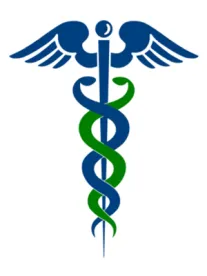Although much of the latest Connecticut legislative session focused on the budget, and while fewer health care bills passed than we have grown accustomed to in recent years, we still ended up with a number of public acts affecting health care providers. The following summaries highlight some of these acts.
CHANGES TO MEDICAID PROVIDER AUDITS
New statutory language in the Medicaid Provider audit statute is a positive step for health care providers who service some of the state’s most vulnerable residents. Pursuant to Section 1 of Public Act 17-135, effective July 1, 2017, it is clear that the Department of Social Services cannot apply an agency policy, guideline, bulletin or manual provision, or other criteria, to an audit unless the policy, etc., with an effective date, was promulgated and distributed to a provider prior to the provision of a service included in a claim being audited.
CHANGES TO OPIOID PRESCRIPTIONS
Sadly, Connecticut, like much of the nation, is experiencing an opioid abuse epidemic. In light of this, Public Act 17-131 makes various changes to both prevent and treat opioid drug abuse in the State. These changes include, but are not limited to: requiring prescriptions for controlled substances to be transmitted electronically to pharmacies, except in very limited circumstances (effective January 1, 2018); limiting the amount of opioid drugs a minor can be prescribed from a seven-day supply to a five-day supply, unless there is an acute medical condition requiring a larger supply (effective July 1, 2017); and requiring providers to counsel adults and minors regarding the risks of taking opioids when they issue a prescription for an opioid drug (effective July 1, 2017).
NEW FACILITY CONSTRUCTION REQUIREMENTS
Pursuant to Public Act 17-95, effective October 1, 2017, any "institution" that is planning a construction project or building alteration must provide the project plan to the Department of Public Health (DPH) for review. Each project will be required to comply with nationally established facility guidelines for health care construction, approved by DPH’s Commissioner. DPH will post a reference to the guidelines on its website. Institutions will not be required to include matters in their plans that are outside the scope and applicability of the guidelines. For the purposes of this Public Act, the term "institution" includes, but is not limited to, hospitals, nursing homes, home health care agencies, behavioral health facilities, assisted living services agencies, substance abuse treatment facilities and outpatient surgical facilities.
CHANGES TO FACILITY FEE NOTICES
If a hospital charges a facility fee, where a professional fee will also be charged, the hospital is already required to notify the patient of certain information, including that the patient’s financial liability will depend on the services actually rendered and that the patient may incur greater financial liability than the patient would incur if the services were not provided at a hospital-based facility. Pursuant to Section 5 of Public Act 17-241, effective October 1, 2017, these facility fee notices that hospitals must provide to patients under certain circumstances must now also contain a telephone number that the patient may call for additional information regarding his or her potential financial liability, including an estimate of the facility fee likely to be charged based on the scheduled professional medical services.
CHANGES TO HIV COUNSELING REQUIREMENTS
Pursuant to Section 3 of Public Act 17-6, effective July 1, 2017, the State narrowed the list of requirements for what a provider needs to tell a patient when communicating and counseling the patient regarding the results of an HIV test. The change to this statute eliminated the requirements to provide the patient with counseling or referrals for counseling: (1) for coping with the emotional consequences of learning the result; (2) regarding the discrimination problems that disclosure of the result could cause; and (3) for behavior change to prevent transmission or contraction of HIV infection. Providers must still, however, provide counseling or referrals for counseling regarding: (1) available medical treatments and medical services; (2) local or community-based HIV/AIDS support services agencies; (3) the decision to seek ongoing treatment, or to involve a minor’s parents or legal guardian in that decision, if applicable; and (4) the need to notify the patient’s partners, and, as appropriate, provide assistance in notifying partners. Further, this Public Act eliminated the explicit option for a patient to refuse his/her HIV test result.





 />i
/>i

